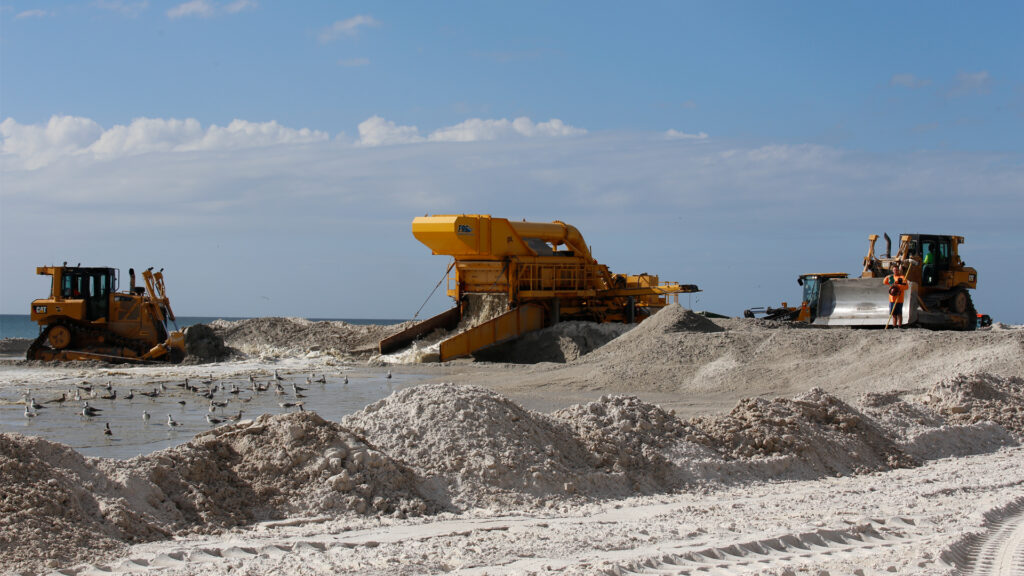A roundup of news items related to climate change and other environmental issues in Florida:
Florida could ask Congress to force beach nourishment issue | Tampa Bay Times

At the prompting of two Pinellas County lawmakers, Florida could formally urge Congress to tell the U.S. Army Corps of Engineers to change the policy positions that have delayed the nourishment of Pinellas’ severely eroded beaches.
Rep. Lindsay Cross, D-St. Petersburg, and Rep. Kim Berfield, R-Clearwater, filed the House memorial on shore protection last week. The state has little power in the beach nourishment dispute, which has mostly played out between the county and the Corps, a federal agency. Likewise, a memorial isn’t a law — if passed, it would essentially be a forceful note to Congress.
But Cross and Berfield’s filing shows how the bipartisan backlash against the Corps continues to spread. It’s the latest entry in a conflict that has frustrated and befuddled coastal residents, city and county officials, beach preservationists and federal lawmakers.
2024 starts with off-the-charts heat in the oceans. Here’s what could happen next | USA Today
As the final numbers show that 2023 was the hottest year on record, the burning question is whether 2024 will be even hotter than the blistering year that preceded it.
The answer may lie in the world’s oceans.
Ocean temperatures are at or near their peak and ocean surface temperatures are “off the chart,” since rocketing up last spring, one group of scientists said last week in a letter published in the journal Advances in Atmospheric Science.
She’s Miami’s compost queen, ruler of a climate-friendly, waste-eating worm force | Miami Herald
One of Lanette Sobel’s most trusted business partners is a worm.
Actually, she works with lots of worms. They’re essential to her specialized six-acre farm in Homestead. While many of her agricultural neighbors grow food, her mission is disposing of it in a way that is better for the environment. Fertile Earth Worm Farm is the largest commercial composting operation in South Florida, diverting tons of food scraps from landfills and transforming it into dark, crumbly garden soil.
“Anything that used to live can be composted. We all turn back to stardust,” said Sobel. “To me, this is the basis of what Mother Nature intended. This is about circular economy. This is about keeping things where they’re supposed to be and making a better future.”
If you have any news items of note that you think we should include in our next roundup, please email The Invading Sea Editor Nathan Crabbe at ncrabbe@fau.edu. Sign up for The Invading Sea newsletter by visiting here.



